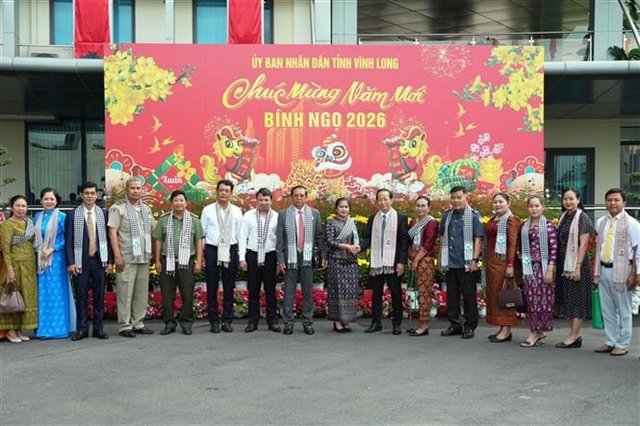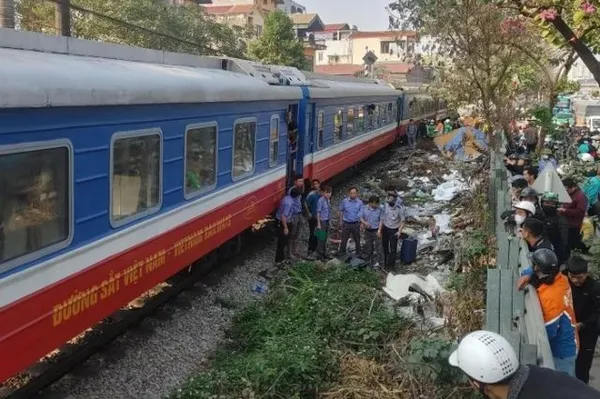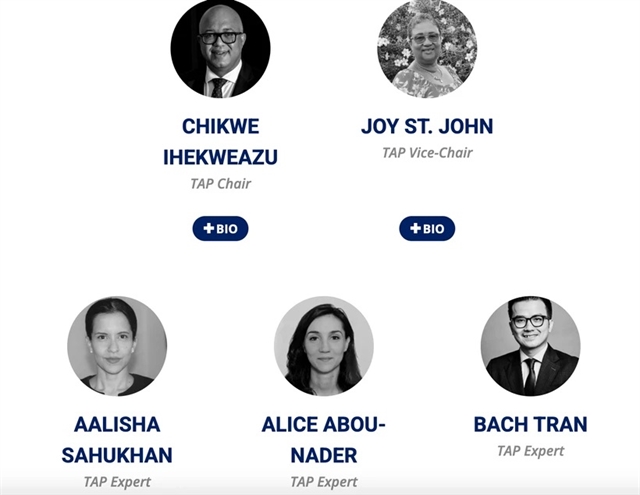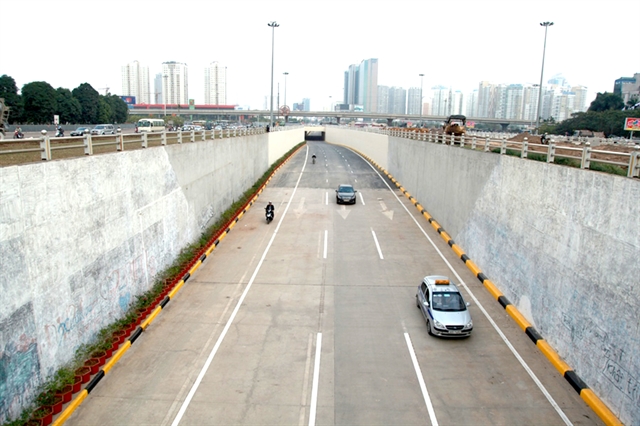 |
| A tunnel in Hà Nội's Trần Duy Hưng Street. — Photo kinhtedothi.vn |
HÀ NỘI — Effectively using and managing underground spaces plays a vital role in the process of urban development.
The latest Capital Law, alongside planning directives, aim to maximise and enhance the use of existing and still on the drawing board underground spaces.
The Capital Law 2024, recently approved by the National Assembly, along with Hà Nội's Capital Planning for the 2021–2030 period with a vision to 2050 and the Adjusted General Planning for Hà Nội until 2045 with a vision to 2065, as approved by the Prime Minister, serve as critical legal documents addressing bottlenecks in underground space planning.
Unlocking potential
According to experts and architects, during the French colonial period, underground spaces in Hà Nội primarily consisted of basements which were built underneath villas and used mainly to house power lines.
The guest house in Hai Bà Trưng Ward's Phạm Đình Hổ Street is one such example.
The house, which now operates as a hotel, originally had two basements which were later renovated into four basements, while today there are six underground spaces.
The Vice President of the Việt Nam Urban Planning and Development Association, Dr. Đào Ngọc Nghiêm, said that Hà Nội has taken an early lead in underground space planning, but it must continue to progress to meet practical requirements.
In recent years, Hà Nội has made certain advancements in the use of underground space, including basements in high-rise buildings, underground power line systems and wastewater drainage systems.
The city has also started constructing its first metro lines of Nhổn – Hà Nội and is orienting the use of underground space toward transit-oriented development (TOD), which focuses on urban development centred around public transport, he told kinhtedothi.vn.
However, experts say Hà Nội has yet to fully exploit its potential and advantages for developing underground spaces.
According to the Ministry of Construction, the Capital Law is a key legal document outlining the responsibilities, policies and roles related to urban development and protection of Hà Nội.
Yet, after more than nine years of implementation, certain objectives, solutions and regulations have not been effectively realised, particularly concerning urban underground space management and implementation practices.
The cause of these shortcomings and limitations is that the implementation of policies and laws is not synchronous, timely, and complete and has not promoted the effectiveness and efficiency of mechanisms and policies to develop the capital city with its position and role as the heart of the country. Some provisions of the law are also mainly principles and general orientations, lacking regulations on specific mechanisms for practical implementation.
Dr. Nghiêm said: "The Capital Law assigns Hà Nội the task of exploiting underground spaces based on the Land Law. Previously, underground spaces existed but regulations only allowed landowners to use subterranean areas directly beneath their surface properties.
“Currently, with adjustments being made to underground space policies, effectively resolving these issues could unlock significant land potential —not just for underground infrastructure but also for public facilities," he said.
Meanwhile, Nguyễn Thị Phương, from the Party Central Committee’s Internal Affairs Commission, said that there is a need to further join up the use of underground and above-ground spaces.
As stipulated in Article 19 of the Capital Law 2024 regarding the management and use of underground spaces, the management and use of these spaces must adhere to the principles of comprehensive assessments of natural conditions, geology, geomorphology and hydrology, along with proper strategies, plans and policies.
Developing a modern city
To build Hà Nội into a modern city, it is essential to further integrate underground and above-ground spaces, promoting scientific planning, use of such space in a rational way and meticulous management of underground space resources through specific efforts.
Furthermore, high-quality underground space management systems need to be established.
According to Associate Professor Nguyễn Công Giang, to ensure the sustainable exploitation of Hà Nội’s underground space, it is crucial to develop a policy framework with clear planning principles.
“These principles should clarify ownership and usage rights of underground spaces, establish appropriate depth limits for different development purposes, and ensure compatibility between various uses,” Giang said.
Additionally, there must be a plan to reserve underground space for future development needs, including connections between underground spaces and surface spaces for transportation and infrastructure purposes, he added.
Experts also suggest that implementing the Capital Law's provisions on underground space management effectively would benefit from drawing on international experience.
Based on studies of practices in countries such as Singapore and Japan, the issues of management and use of underground spaces set in the Capital Law is to complete the legal system for underground space management, especially specifying underground depth limits, including a survey of public opinions and draw out construction methods, suitable with geological conditions.
Authorities should rapidly initiate comprehensive and detailed underground space planning to maximise efficiency as well as develop a national database for underground structures and improve management across all stages of putting the underground space into use, Giang said.
In addition, efforts must be made to raise public awareness about the legal provisions of the Capital Law concerning underground space management. Public understanding of their rights and obligations will foster support for the city’s underground infrastructure projects, he said. VNS
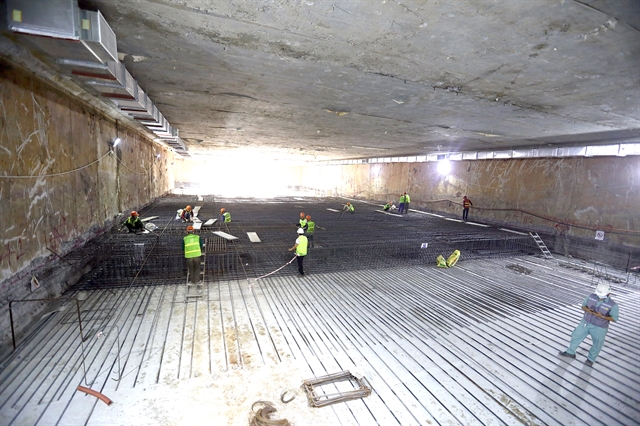 Society
Society




